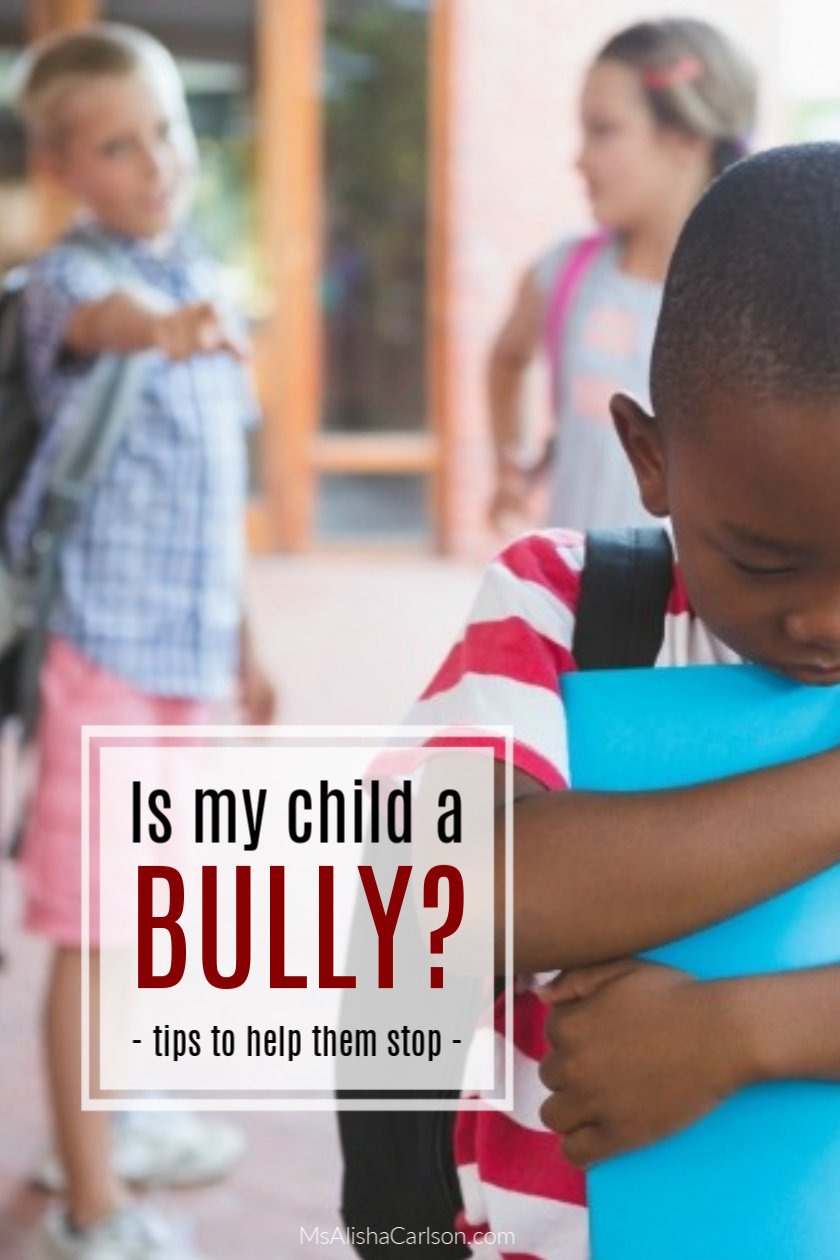It usually begins with a simple phone call from the school to alert you that your child has been caught bullying another. While your initial reaction may be disbelief that your child is capable of such acts, it is important to keep in mind that every single child is capable of being a bully, even the ones that you believe to be well behaved.
The truth is, no parent wants to hear that their child is a bully. It is painful to consider that your child could be inflicting harm on other kids but it’s also important to note that this could indicate a serious issue with your child. If you find out that your child has been engaging in bullying behaviors, be it verbal or physical, they may be feeling depression, anxiety and have difficulty regulating their behaviors and emotions.

What is Bullying?
Bullying is more than just the meanie on the playground throwing punches. Bullying is a form of physical or emotional abuse, comprised of three different characteristics. These characteristics are usually included when the behavior is labeled as bullying:
- Repeated – The behaviour has the potential to be repeated over time or is already being repreated.
- Deliberate – The intention is to hurt someone either emotionally or physically.
- Imbalanced Power – A bully’s victims are usually chosen based on their vulnerability.
There may be some behaviors that mimic bullying, but these require different approaches. Determining whether a situation is in fact bullying is extremely important.
Bullying also takes place in different forms with varying degrees of severity. Bullying can be any combination of the following:
- Verbal Bullying – Taunting, yelling, insulting, name-calling, threatening harm.
- Physical Bullying – Pushing, poking, hitting, kicking, etc.
- Cyberbullying – Sending hurtful images or messaging by cell phone, internet and social media.
- Relational Bullying – Spreading rumours, excluding others, encouraging others to participate in bullying behaviours towards someone else.
Both children that are bullies and being bullied can experience severe consequences to the bullying.
Is Your Child the Bully?
There are a few signs to look for when it comes to determining whether your child is a bully or not. The following are things to look out for:
- Needs to be in control
- Lacks empathy
- Underdeveloped interpersonal and social skills
- Has been bullied previously
- Takes pleasure from the suffering and pain of others
- Always strikes first
- Concerned about getting or staying popular
- Refuses to include certain kids in study or play
- Seems intolerant of others who may be “different” than they are
- Teases or taunts others
Put a Stop to Your Child’s Bullying
If you have determined that your child is displaying bullying behaviours, it’s important that you take the appropriate steps to put a stop to it.
Remain Calm
Keep cool. Finding out your child has been bullying another child is not the time for you to get angry, especially with the school. Chances are you are going to have to deal with the victims’ parents and school officials and you need to keep a cool head when doing so.
Acknowledge the Behavior
Speak in a firm but calm tone with your child and ask why they are behaving in this manner. It is important to be a good listener at this point and avoid accusations and blame. Children need to understand that it is alright to admit they have made a mistake in their behaviour. Ask questions to help your little one understands how this behavior affects others. Questions like: “Would you like it if someone treated you that way?” can encourage your child to look inwards and understand how much they hurt someone. Make sure you emphasize the importance of treating everyone the way they would want to be treated.
Focus on Consequences
Make your child accountable for their actions and choices. Follow through with all set consequences for their behaviour. Depending on the circumstances you can eliminate something your child enjoys so they feel the effects of their actions. Make this a teachable moment, focusing on discussing positive ways your little one can handle future situations that lead to positive outcomes rather than negative ones.
Be Proactive
When school faculty see that parents sincerely want to improve the situation at hand, they are more likely to want to help. There is nothing wrong with asking for help. Work with the school to help your children learn constructive behaviors and help build an action plan to help your child stop bullying. The school is also a fantastic lace to find other community resources like counseling or therapy that can help your child succeed. Always stay in close contact with the school and discuss all improvements.
Build Emotional and Social Skills
It is incredibly important to empower your children to build the skills they need to resolve conflicts and handle difficult situations. Emotional and social learning includes self management, social agility, resilience, self awareness, and the ability to make responsible decisions. There are many after school programs and therapy options that can help your child to develop their relationship skills. It is important to focus on building these skills while your child is in elementary school, so the bullying behaviors come to a full stop as soon as possible.
Finding out your child is participating in bullying behaviors can be disheartening for any parent. It is important that you know the true definition of bullying, know the signs and find ways to put a stop to it, before it progresses even further. But you are your child’s biggest influence. Momma, you know their heart. You see the good in them. You can make a difference in ending their bullying. Please don’t overlook the warning signs because in the end, another child is suffering. What if that were your child?
If you have ever had experience with this and are willing to share how to help your child, we would love to hear from you! Please leave a message in the comments below.





